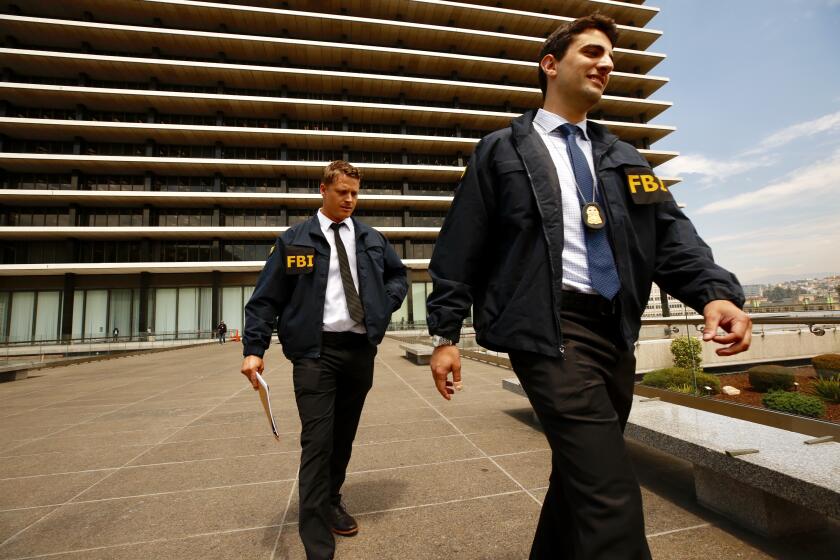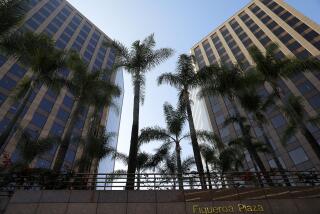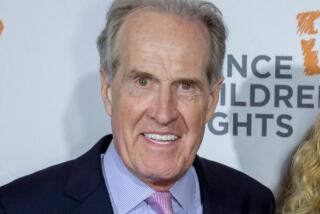Dramatic FBI raids at L.A. City Hall and the DWP scandal that won’t go away
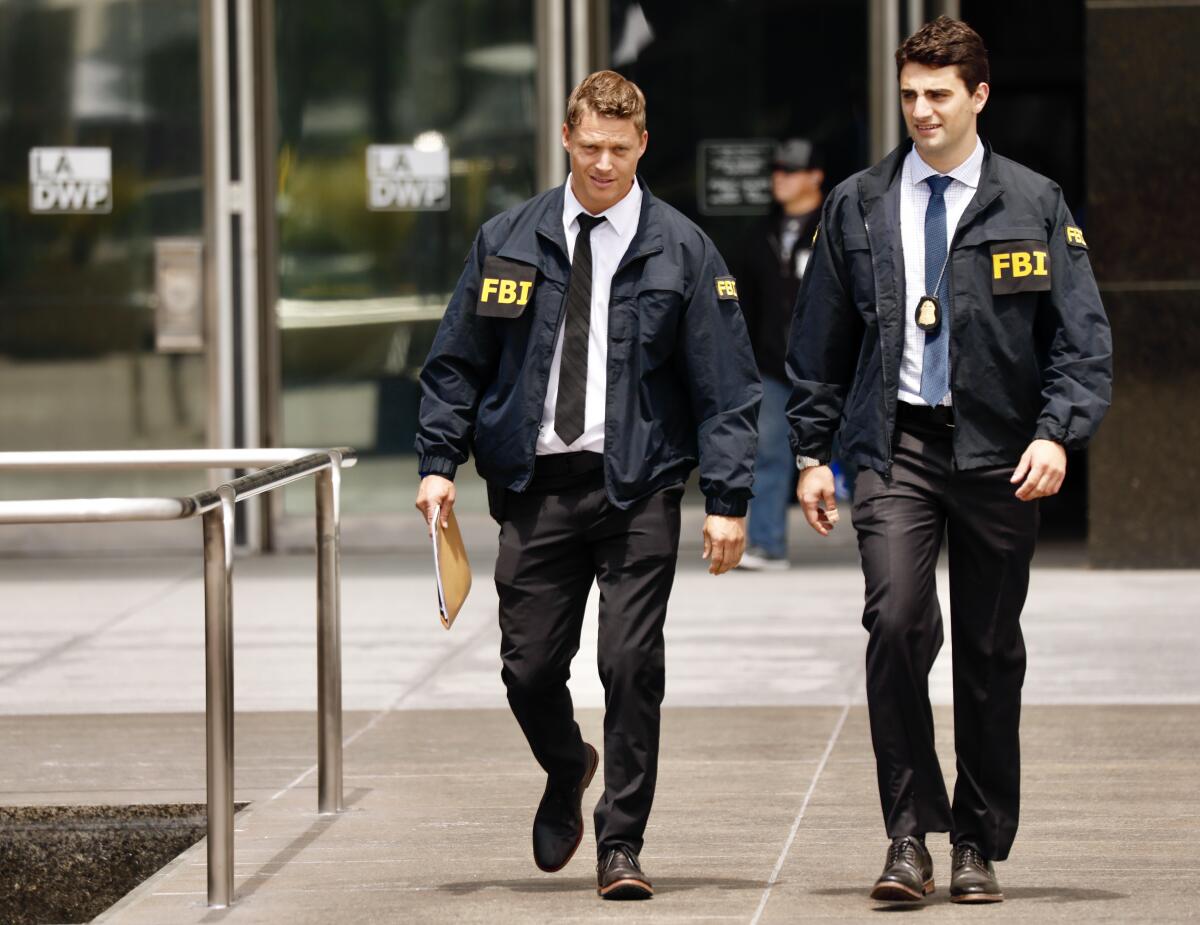
The dramatic FBI raids at the Department of Water and Power and Los Angeles City Hall on Monday are tied to a long-running DWP billing debacle that seems to never go away.
The focus is on litigation stemming from the city’s settlement of a class-action lawsuit filed over inaccurate DWP bills that resulted from the launch of a new billing system earlier this decade. The FBI served search warrants at several locations related to the case.
Here is what we know:
What is the overbilling case about?
After the DWP moved to a new billing system in 2013, hundreds of thousands of DWP customers received inaccurate bills, some of them wildly inflated.
Outraged customers sued, culminating in a $67-million legal settlement between the utility and its ratepayers. Separately, the city sued PricewaterhouseCoopers, the global consulting firm that had overseen the launch of the new billing software.
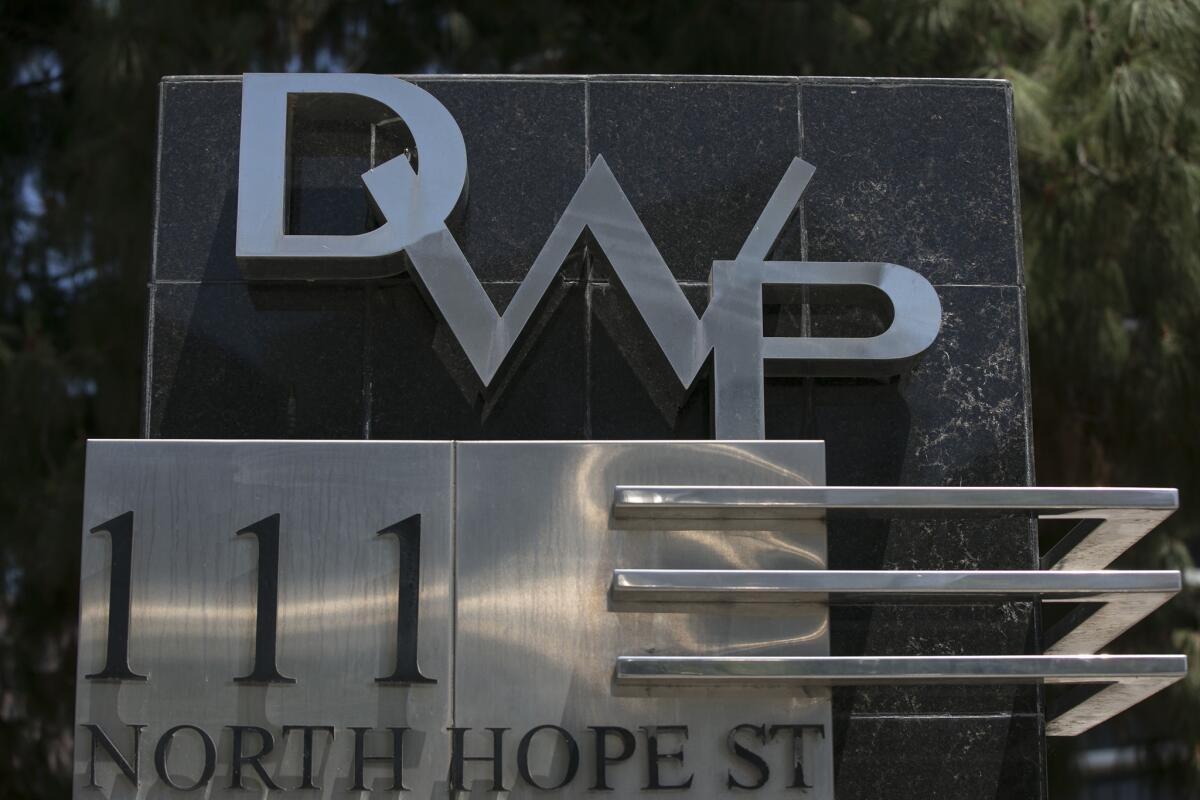
What were agents searching for?
An excerpt of a federal search warrant reviewed by The Times shows that investigators were seeking information about DWP contracts — awarded or proposed — with companies affiliated with New York attorney Paul Paradis, who worked for City Att. Mike Feuer’s office.
Paradis was hired by Feuer to help the city’s legal team as it sued PricewaterhouseCoopers in the wake of the billing debacle. The companies mentioned in the search warrant, which was filed last week, include Paradis Law Group, Aventador and Ardent.
The warrant named several locations to be searched, including the offices of DWP’s top executive, General Manager David Wright, and the five members of the department’s Board of Commissioners, all appointed by L.A. Mayor Eric Garcetti.
Investigators sought evidence of a wide array of possible crimes, including bribery, kickbacks, extortion, mail fraud and money laundering, according to the warrant.
The FBI has conducted a search at the downtown Los Angeles headquarters of the DWP.
Attorneys for Paradis did not respond to multiple requests for comment. An attorney for PricewaterhouseCoopers said he was still reviewing Monday’s events and declined to comment.
Federal agents also searched the Beverly Hills law office of attorney Paul Kiesel, an FBI representative said. Kiesel, along with Paradis, was hired by Feuer’s office to work on the city’s lawsuit against PricewaterhouseCoopers over incorrect utility bills.
Kiesel confirmed in an interview Monday that his office was searched. “I gladly provided access to all the information that was requested,” he said.
What does PricewaterhouseCoopers allege?
Lawyers defending PricewaterhouseCoopers against the city’s lawsuit said they had uncovered an arrangement at City Hall that constituted a massive conflict of interest: According to testimony, Paradis, who was on the city’s legal team that was suing the consultant, had once represented the DWP customer whose class-action lawsuit resulted in the $67-million payout by the utility.
Paradis also secured lucrative no-bid contracts from the Department of Water and Power to help the city comply with the terms of the settlement of the class-action suit. The utility ultimately approved more than $36 million in contracts with companies connected to Paradis, in part to address problems stemming from the overbilling debacle.
Paradis, through his attorney, has previously denied wrongdoing. During a deposition in the PricewaterhouseCoopers lawsuit, he invoked his 5th Amendment right against self-incrimination in response to nearly every question.
More to Read
Sign up for Essential California
The most important California stories and recommendations in your inbox every morning.
You may occasionally receive promotional content from the Los Angeles Times.
